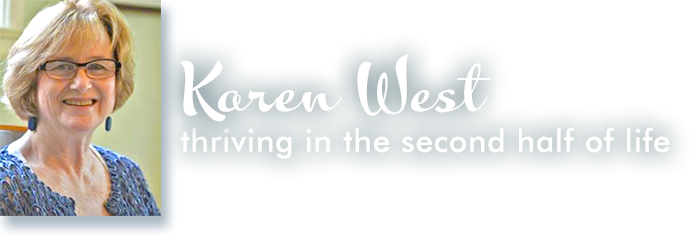In my last few blog entries, I have been introducing you to Rabbi Zalman Schachter-Shalomi’s sage-ing core topic Life Review. I will continue in the next few to write about why this spiritual practice is so important, especially in the second half of life.
The first step in the process of doing Life Review as explained in From Age-ing to Sage-ing is to try to remember and record what Rabbi Zalman calls “the raw data of our experience.” (See P. 271–273) Begin by dividing your life into 7‑year segments, 0–7 (January), 8–14 (February), 15–21 (March) and so on. Just add 6 years to the lowest number of the cycle. The last month is December (78–84), so if you are 85+, we call the years after 84 “the Jubilee Month.”
Then make 3 columns: 1) What were the significant moments and events of each phase of life? 2) Who were the people who guided and influenced you during each period? 3) What did each phase contribute to the continuüm of your life?
Finally, fill in the spaces with whatever you can remember. Just write down anything that pops into your head. Don’t worry about doing this in any systematic way.
In the book From Age-ing to Sage-ing, Rabbi Zalman tells us that “memory becomes sharper and clearer when it’s associated with partitioned time,” (271), which my students have found to be true. And even more importantly, “once we have assembled the raw data of our experience, we can grasp the overarching pattern that was struggling to express itself through the ups and downs, the successes and failures that make up the rich texture of our lives” (272).
“The overarching pattern that was struggling to express itself” is a very important concept in Life Review. As James Hollis says in his book Finding Meaning in the Second Half of Life: How to Finally, Really Grow Up, “We are the meaning-seeking, meaning-creating animals.” (6) And in order to create this meaning, we organize this “raw data” into a narrative or a story. As we go through life, we remember very few of our experiences.”
 So, how do we choose which experiences we are going to remember? As Kathleen Dowling Singh says in her book The Grace in Aging: Awaken as You Grow Older, “Out of a million memories, we select the ones that support and validate whatever narrative is holding sway. For every thousand memories we carefully select, we forget that there are hundreds of thousands of other memories that don’t substantiate the narrative in any way at all. We use selective vision, selective memory, in the creation and maintenance of the stories we have been using to explain and underpin and understand and justify ourselves.” (237) And unfortunately, not all the narratives or stories that we create help us to live our best lives. Some stories get in our way or hold us back.
So, how do we choose which experiences we are going to remember? As Kathleen Dowling Singh says in her book The Grace in Aging: Awaken as You Grow Older, “Out of a million memories, we select the ones that support and validate whatever narrative is holding sway. For every thousand memories we carefully select, we forget that there are hundreds of thousands of other memories that don’t substantiate the narrative in any way at all. We use selective vision, selective memory, in the creation and maintenance of the stories we have been using to explain and underpin and understand and justify ourselves.” (237) And unfortunately, not all the narratives or stories that we create help us to live our best lives. Some stories get in our way or hold us back.
Or as Daniel Taylor puts it in his book Creating a Spiritual Legacy: How to Share Your Stories, Values, and Wisdom, “Everything I believe and think and do can be linked to a story that I have consciously or unconsciously embraced.” (14)
It is crucial that in the second half of life we consciously look at content of the stories we have been acting out, because many of them were created when we were children, and we had a very limited understanding of the world. We are much smarter now. And as we become aware of these stories, especially the disempowering ones, we shouldn’t be too hard on that childish self who mistakenly created them. That child was just trying to make it through. But this is why life review is so important.
As Kathleen Dowling Singh puts it in The Grace in Aging, “The work of life review, leading to life resolution, releases us from our story. It is the work of self-inquiry. It engenders a liberation into the freedom of presence—into experiential attention, free from narrative.” (90) “To do the work of awakening in the last years of our life, our stories are pivotal.” (231)

